 July saw a low level of activity for bids being submitted but we did have more awarded with congratulations due to Schools for winning research grants, consultancy contracts and organising Short Courses.
July saw a low level of activity for bids being submitted but we did have more awarded with congratulations due to Schools for winning research grants, consultancy contracts and organising Short Courses.
For Applied Science, congratulations are due to Jonathan Monteith for his four consultancies with North Mead Farm, Merryfield Park Partnership, New Forest National Park Authority and Balfour Beatty Construction, to Kathy Hodder for her consultancy with Fieldwork Ecological Services Ltd, and to Holger Schutkowski for his consultancy with Cellmark Forensic Services. Good luck to Jonathan Monteith for his consultancy with WPA Consultants, to Adrian Pinder for his consultancy with the Forestry Commission, to Richard Stafford and Roger Herbert for their application to NERC in connection with marine ecosystems, and to Adrian Newton for his application to DfID regarding livelihood and biodiversity benefits from forest transitions in Mesoamerica.
For the Business School, congratulations to Jens Holscher for his ESRC Festival of Social Science project for ‘Finance for Small Firms’.
Good luck to DEC, for Venky Dubey’s application to NIHR researching patient specific advanced epidural simulator to improve patient safety, to Katherine Appleton for her application to NIHR for a pilot study to test implementation of a food-based rewards intervention in secondary schools, and to Sarah Bate for her application to the British Psychology Society to launch the Face Blindness awareness campaign.
For HSC, congratulations are due to Les Todres and Caroline Ellis-Hill for their contract with the Burdett Trust for Nursing, to Keith Brown for his consultancy with Skills for Care, to Grants Academy member Vanora Hundley for her two matched funded PhD contracts and her contract ‘Every reason to SMiLE’ all with Portsmouth Hospitals NHS Trust, to Anthea Innes for her two matched funded PhD contracts with Hamble Heights and Guild Care, and to Sarah Hean, also a Grants Academy member, for her matched funded PhD contract with Legal and General. Good luck to Sarah Hean for her contract to the British Council, and to Keith Brown for his contract to Mouchel Management Consulting Ltd.
 Congratulations to the Media School for Rebecca Jenkins and Mike Molesworth for their consultancy with Work Research Ltd, to Anthony Minto and Peter Truckel for their consultancy with iHeed Institute, and to Grants Academy member Carrie Hodges for her ESRC project ‘Seen but seldom heard, which is together with Wendy Cutts and Lee-Ann Fenge from HSC. Good luck to Chris Pullen for his Leverhulme application for an interactive Ebook on diversity and family, and to Tom Watson for his contract to the British Council.
Congratulations to the Media School for Rebecca Jenkins and Mike Molesworth for their consultancy with Work Research Ltd, to Anthony Minto and Peter Truckel for their consultancy with iHeed Institute, and to Grants Academy member Carrie Hodges for her ESRC project ‘Seen but seldom heard, which is together with Wendy Cutts and Lee-Ann Fenge from HSC. Good luck to Chris Pullen for his Leverhulme application for an interactive Ebook on diversity and family, and to Tom Watson for his contract to the British Council.
For School of Tourism, congratulations to Lisa Stuchberry, Stephen Calver, Anya Chapman, Nicky Pretty and Lauren Thom for their consultancy with Marketing Blackpool, to Dimitrios Buhalis, Philip alford and Alessandro Inversini for their ESRC Festival of Social Science project, Richard Gordon for his short course with the Foreign and Commonwealth Office, and to Lisa Stuchberry, Jon Hibbert and Lauren Thom for their contract with Christchurch Borough Council to carry out a residents survey. Good luck to Dimitrios Buhalis and Alessandro Inversini, who is a Grants Academy member, for their application to European Commission.
Best wishes
Matthew
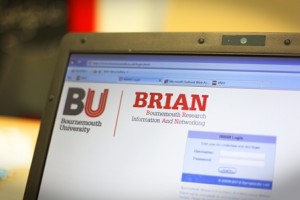


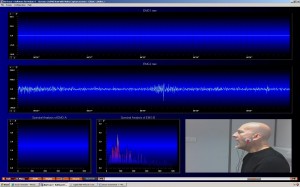




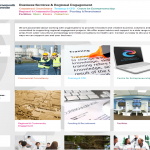
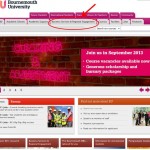





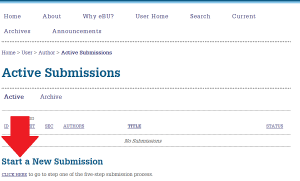











 BU Research Conference 2024: Powerful partnerships – book your place
BU Research Conference 2024: Powerful partnerships – book your place TechFusion Summit – i3 Simulations (9th -10th May 2024)
TechFusion Summit – i3 Simulations (9th -10th May 2024) TANGERINE project has lift off with BPC Indian Community!
TANGERINE project has lift off with BPC Indian Community! Apply for up to £1,000 to deliver an event and take part in a national festival of public engagement with research
Apply for up to £1,000 to deliver an event and take part in a national festival of public engagement with research MSCA Postdoctoral Fellowships 2024
MSCA Postdoctoral Fellowships 2024 Horizon Europe News – December 2023
Horizon Europe News – December 2023